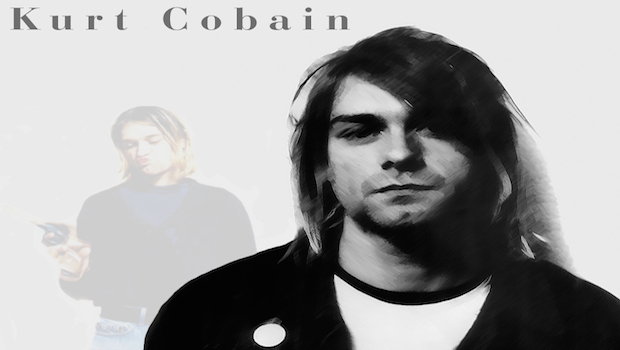Known as “the last real rock star”, the leader of grunge, vocal opponent of racism, sexism and homophobia and pro-choice supporter, and potentially the most shocking addition to the ’27 Club’, Nirvana’s Kurt Cobain is rightly looked up to by many.
The late 1980’s, early 1990’s brought about a transition in music. Now, Nirvana weren’t entirely original in their sound, and they weren’t to first to fire out distorted guitar riffs and rapsy vocals, but they had something that made people listen.
One of the many reasons Kurt is looked up to and idolised is the movement he created. Essentially, through the direction of Nirvana, Cobain gave way to a lot of similar artists such as Pearl Jam and Soundgarden. Alt Rock and Grunge soon became an acceptable sound for radio and television. However, this idolisation brought about a lot of attention which didn’t quite sit with Cobain.
It wasn’t just media and press attention that brought his personality and mental health into difficulty though; Kurt’s early life saw levels of struggle which all sort of sprouted from his parents’ divorce.
“I remember feeling ashamed, for some reason. I was ashamed of my parents. I couldn’t face some of my friends at school anymore, because I desperately wanted to have the classic, you know, typical family. Mother, father. I wanted that security, so I resented my parents for quite a few years because of that.”
– Kurt Cobain
Having become quite reclusive and withdrawn in his teenage years, Cobain’s songwriting, and in turn, Nirvana’s music held force and delivered an impact with such often complex and ambiguous, yet emotive lyrics.
Channeling all this into ‘Nevermind’, the success of the album attracted media and press attention, much to Kurt’s resentment. The growth of Nirvana and the pressure on Kurt as a public icon to be secluded under the public eye was something he himself struggled to adjust to – a leading cause of many difficulties down the line.
Despite Kurt’s troubled life, his death is one of an ongoing dispute and never-ending confusion. Following illness for a large period of his life, excessive drug use and previous suicide attempts, Cobain’s body was found dead at his home in Washington on April 8th 1994, with a severe amount of heroin consumed and a shotgun to his chin said to have taken his own life three days prior (April 5th).
The theories surrounding Cobain’s death as murder, range from an inability to pull the trigger of the shotgun with the amount of heroin in his bloodstream at the time of his passing, to the handwriting in his suicide letter, but no definitive evidence of murder has been discovered.
The loss of a father, a husband, a friend to many, and music’s most influential star remains a mystery after 20 years, with slim chance of closure being sought. His music, however, lives on through many.
Keep an eye on Fortitude Magazine everyday this week for more on Kurt Cobain and Nirvana.
Don’t forget to let us know your thoughts in the comments below – we want to hear your voice!

